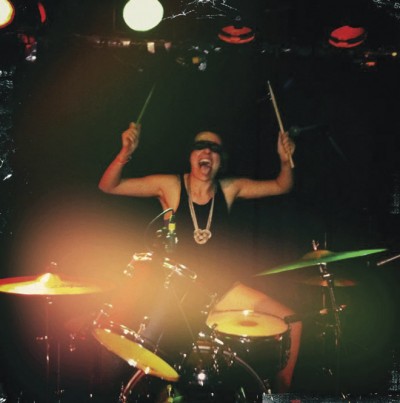
The young and relentlessly prolific artist Jesse Ball has achieved notable success in the literary world. His first volume of poetry, “March Book,” was published in 2004 when he was still an MFA student at Columbia University. Ball’s literary success has continued to climb ever since, an eclectic collection of books ensuing. His latest fiction “The Curfew,” is a compelling dystopian tale delivered in a graceful style, and has been reviewed favorably by the New York Times, New Yorker, and the Chicago Tribune. He is now an assistant professor in the writing program at the School of the Art Institute of Chicago.
Ziyuan Wang: How did you decide to become a writer?
Jesse Ball: With great hopefulness and very little understanding of the obstacles. Writing is one of many things I do. Artistically, it has brought me the most success, clearly.
ZW: What is your biggest drive to write?
JB: It differs from moment to moment — sometimes guilt, sometimes curiosity. I write in part to surprise myself. I feel guilty if I have not been productive.
ZW: What are the turning points in your writing career?
JB: When I began to make my own volumes around 2001. At that time, I solidified the style I have used since.
ZW: Would you make drastic stylistic changes in accordance with the evolving ideas as your understanding of the world deepens?
JB: I would think that a different understanding of the world would prompt some sort of stylistic shift. Style is simply a visible form.
ZW: You wrote productively when you were living overseas. Is there something about your dislocation that calls forth fresh viewpoints?
JB: It is easier when in a liminal position to notice who you are and who you are not.
ZW: Where does the version of reality ruled by tyranny in your new book“The Curfew” come from? Does it mirror any real place on earth?
JB: Someone might say it isn’t far from how things are today.
ZW: How do you come up with the minute details of unfamiliar places and people?
JB: It is something natural to that process of imagining, to be familiar with distant and impossible things.
ZW:Is there always a political message in your fiction works?
JB: In so far as all things are political, yes; In so far as nothing is, no.
ZW: What is the intention for you to picture a political backdrop without dictating what to make of it?
JB: I see no reason to tell people what to make of anything. I don’t ask the readers for anything in particular. They may enjoy the tale or roam through the world I’ve made. I won’t restrict them to one view. There is no goal to teach any particular thing, indeed no goal to teach at all. One simply unfolds a tale.
ZW: How do you make sure the experimental elements of your story-telling don’t alienate the reader?
JB: I don’t believe there are experimental elements in my work. There are basic folkloric or “bardic” techniques that predate the novel, that predate written history, probably.
ZW: Is your writing practice influenced by movements and theories in visual art?
JB: Influenced by visual art, yes. By movements and theories only if they are themselves fascinating. I like Bruegel, Manet, Velasquez, Whistler, Corot, Sargent.
ZW: You are known for your fast writing methods. How did you develop these methods?
JB: I have always been a hyperactive and obsessive person. It was true of me as a boy. It remains true. Such a life lends itself to wild and ill-advised devotions.
ZW: Could you give some examples on what you have obsessed over?
JB: Chess, Ms. Pacman, Dream-recording, compulsive film watching.
ZW: Although you write fast, your writings are gracefully composed. Are structures of the stories well thought out before your start writing? How much do you depend on revision?
JB: Structures are not always completely understood before the writing. I prefer to not allow myself to think I can let myself write badly and then revise it; better to write it properly the first time. Giving oneself the latitude to revise makes revision inevitable.
ZW: When you are telling a tragic story using a third person point of view, how do you differentiate your stance between a compassionate observer and an apathetic narrator?
JB: Do I?
ZW: The class you are teaching at SAIC, “ Lucid Dreaming,” sounds very intriguing. What is the intended outcome of the class?
JB: Oh, you must take the class to know. The outcome is that they may be awake while dreaming.
ZW: As an avid reader, one of my greatest pleasure comes from gaining a vantage point that is usually elusive. How does your reading experience influence your writing?
JB: Reading is everything. For those who want to write, better to read a thousand books and then write a page than to labor over technique without a reading practice.
ZW: Being so young and established already, do you have worries that promotional activities and media attention would undermine your creativity?
JB: I am careful to protect myself.
ZW: Do you ever read reviews and criticism on your books?
JB: Yes, though I don’t like to.
ZW: Do they impact on your writing?
JB: No, not much of an impact, luckily.
ZW: As a writer, do you think you have reached maturity?
JB: As in, the style of my greatest works? I would hope that I remain capable of surprising myself and my readers with new ways of thinking about things. I would hope that this current state, then, is deeply immature.







